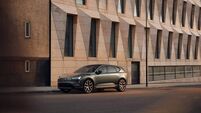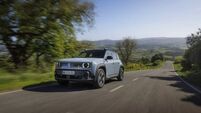Tesla shares slip as gross margin fails to match estimates

Elon Musk managed to get investors to pay more mind to Tesla’s potential in a future dominated by artificial intelligence than its sluggish sales and earnings at present.
Tesla's second-quarter margin dipped as price cuts and incentives to spur sagging demand continued to hurt the bottom line while the company intensifies its self-driving technology efforts, it said on Tuesday.
Tesla recorded automotive gross margin excluding regulatory credits of 14.65% in the second quarter, compared with estimates of 16.29%, according to 20 analysts polled by Visible Alpha.














